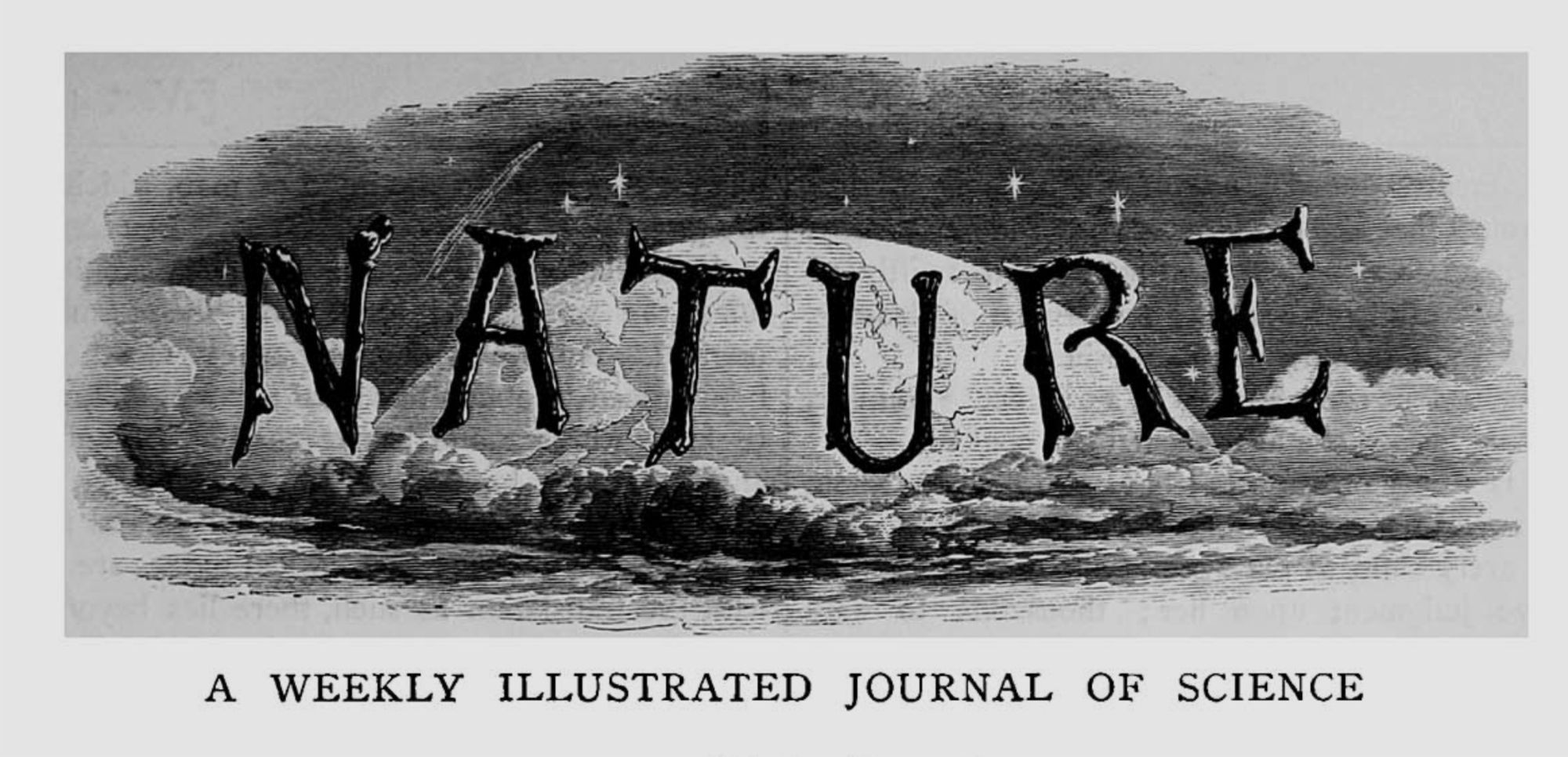Science / Tech
The State of ‘Nature’
Mucking around in the messy business of political compromises and calculations puts scientists at a distance from what they really know.

Should science be political? It is often imagined that debates around this sort of question turn on abstruse theoretical matters. What does it mean to be political? And is it even possible to avoid it? Aren’t scientists’ choices about what to study and research ineluctably political? And wouldn’t it require a kind of intentional naivety to pretend that scientific results aren’t employed in public discourse in distinctly political ways? At issue are the conceivability and desirability of a kind of neutral liberal stance, according to which the facts speak for themselves. This kind of political-theory debate is rehashed endlessly in other spheres: can and should journalism, academia, and so on be political?
But a recent dispute about scientific journals’ endorsements of political candidates puts the lie to this picture. The debate about whether or not an institution should be explicitly political is more often a debate between those who value that institution and who are cautious about changing its practices overnight and those who don’t particularly value the institution and who appeal to vague notions of complicity, solidarity, participation, or “speaking out” for support. This latter group often seems most concerned with appearing publicly to be on the right side of political issues rather than working effectively to achieve political goals.
In October 2020, the prestigious academic journal Nature endorsed Joe Biden’s presidential campaign. Last week, Nature Human Behaviour—a journal which, as far as I can tell, is only loosely related to Nature—published the results of an experiment purporting to show that this endorsement eroded trust in science in general and in Nature in particular. This included diminished trust in information provided in the journal about COVID-19.
If these results are accurate and generalizable, they can form the basis of a strong and simple argument against scientific journals adopting the practice of making political endorsements. First, these endorsements don’t serve their intended purpose—to convince anyone who’s undecided to support a particular candidate—so there’s no real benefit. Second, these endorsements threaten something else the journals value—public trust in science and in the journals themselves—so there is a real cost or risk. Since the decision has a cost but not a benefit, it’s not a good decision.

In response, Nature published an unsigned editorial defending its 2020 endorsement. It acknowledges and explains the results of the NHB paper about the endorsement, but purports to offer other reasons in favor:
Nature’s October 2020 editorial was an appeal to readers in the United States to consider the dangers that four more years of Trump would pose—not only for science, but also for the health and well-being of US society and the wider world. … We live in troubling times for research and for societies, and Nature’s endorsement for the November 2020 US election … should be viewed in that context. Influential political voices are eschewing rigorous evidence and interfering with or undermining the functioning of independent judicial and regulatory bodies that rely on rigorous science and evidence. … Nature doesn’t often make political endorsements, and we carefully weigh up the arguments when considering whether to do so. When individuals seeking office have a track record of causing harm, when they are transparently dismissive of facts and integrity, when they threaten scholarly autonomy, and when they are disdainful of cooperation and consensus, it becomes important to speak up. We use our voice sparingly and always offer evidence to back up what we say. And, when the occasion demands it, we will continue to do so.
Nature is ostensibly offering a response to a version of the strong and simple argument I gave above. But when I read these comments, I don’t see a response. The journal’s editors write that they made an appeal to readers, but nobody doubts that they did so; the question is whether such an appeal was wrongheaded. They write that we live in troubling times for science, but the paper to which they are responding suggests that political endorsements of the kind the journal made, and which it is now defending, make the problems of such times worse. They write that it is “important to speak up,” but they don’t explain why, or for whom. Is it important because it does some demonstrable good? What are the beneficial effects of speaking up? We are not told.
Perhaps speaking up is important merely because it allows some people at Nature to express their views, and political self-expression is a good thing. Holden Thorp, the editor-in-chief of Science, another highly prestigious journal, seemed to suggest something like this in a Twitter thread saluting Nature’s editorial. “Following the admonition to stick to science,” he wrote, “is conceding the idea that scientists can be sidelined in policy decisions.”
In light of @Nature's excellent editorial about why it makes sense to comment on politics (all the way, in their case, to making an endorsement), this is the Pew finding that is most relevant. Following the admonition to stick to science is conceding 1/n pic.twitter.com/1jcwWSsBDs
— Holden Thorp, Science EIC (@hholdenthorp) March 21, 2023
But there is some sleight of hand here. If scientists are sidelined in policy decisions that get the science wrong, then correcting the record would be a matter of merely sticking to science, and would fall cleanly within the ambit of scientific expertise. Alternatively, if scientists are sidelined in policy decisions because they have some reason not to express moral or political views overtly, or aren’t given an opportunity to do so, that doesn’t seem to “sideline” them any more than it would sideline an ordinary citizen. All sorts of people have conflicting reasons to participate in or abstain from participating in the political process, and few have control over mouthpieces like Nature and Science. Further, scientists don’t have any special expertise on questions of values and policy. “Sticking to the science” keeps scientists speaking on issues precisely where they ought to be trusted by the public. Mucking around in the messy business of political compromises and calculations puts them at a distance from what they really know.
In the summer of 2020, “public-health experts” decided that racism is a public-health crisis comparable to the coronavirus pandemic. It was therefore, they claimed, within their purview to express public support for the Black Lives Matter protests following the murder of George Floyd and to argue that the benefits of such protests outweighed the increased risk of spreading the disease. Those supposed experts actually knew nothing about the likely effects of the protests. They made no concrete predictions about whether they would in any way ameliorate racism in America, just as Nature can make no concrete predictions about whether its political endorsements will actually help a preferred candidate without jeopardizing its other important goals. The political action was expressive, not evidence-based; scientists merely wanted to be seen to be on the right side, not to actually help that side.
So, as is often the case, a debate which appears to be about the neutrality of institutions is not really about neutrality at all, in the sense that might be debated in a political-theory classroom. Rather, it is about whether there is any room left for soberly weighing our goals and values and thinking in a measured way about the consequences of our actions rather than simply reacting to situations in an impulsive and expressive manner, broadcasting our views to the world so that people know where we stand. Our goals and values might not be “neutral” at all, but they might still be best served by procedures, institutions, and even individuals that follow neutral principles.
By contrast, abandoning neutrality might actually harm our politically partisan goals; there is no reason to assume that my expression of political allegiance will help the cause I support rather than hurt it. These are exactly the sorts of points you might expect to be appreciated by the minds behind our top scientific publications, even if they are missed by your everyday social-media user. An appreciation of this point would be a big improvement for both science and politics.

Read more from the author






